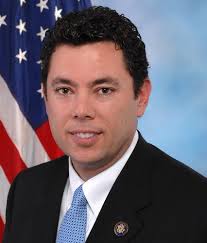“What it’s doing is calling fantasy sports what it is. Do you pay money to get into the contest, and do you get money back when you  win? And if so, that’s gambling.” So says South Point attorney Barry Leibermann of Nevada‘s recent ruling on daily fantasy sports. Although DFS may seem like a logical extension of casino sports book offerings, to say the industry is approaching it with an abundance of caution is understatement of some magnitude.
win? And if so, that’s gambling.” So says South Point attorney Barry Leibermann of Nevada‘s recent ruling on daily fantasy sports. Although DFS may seem like a logical extension of casino sports book offerings, to say the industry is approaching it with an abundance of caution is understatement of some magnitude.
A few reasons are suggested. For one, while Silver State regulators may smile on DFS as a casino game, regulators in other states might  reconsider casino licenses if the parent companies go into DFS. Even to add the requisite software might mean getting in bed with gray-market DFS entrepreneurs, so there’s that. Also, “When you parse it all out state by state, you dwindle the pool so much that it’s not attractive to the players,” says Internet gaming authority Sue Schneider. Per capita, the number of DFS players in Nevada must be pretty small beer — and besides the money is being won by a tiny handful of participants, most of whom seem to work for FanDuel and DraftKings.
reconsider casino licenses if the parent companies go into DFS. Even to add the requisite software might mean getting in bed with gray-market DFS entrepreneurs, so there’s that. Also, “When you parse it all out state by state, you dwindle the pool so much that it’s not attractive to the players,” says Internet gaming authority Sue Schneider. Per capita, the number of DFS players in Nevada must be pretty small beer — and besides the money is being won by a tiny handful of participants, most of whom seem to work for FanDuel and DraftKings.
Global Gaming Business has an excellent piece on the ups and downs (mostly downs) of DFS, from which I will glean some of the highlights. Between the inefficacy of the “game of skill” argument — fat lot of good it did online poker — and Draft Kings’ founder Jason Robins‘ hapless reference to DFS as “a casino,” the industry’s future looks bleak, or at least partly cloudy with a high probability of regulation. Georgia is the latest state to pile on, with the Peachtree State informing DFS operators that the lottery is the only form of gambling permitted therein. Add Georgia to Illinois, Colorado, Delaware, California, Ohio, Michigan, Massachusetts, New York and Mississippi, which are all investigating the pastime, and you have DFS under a lot of governmental microscopes.
DFS could have a really hard time in Florida, where it’s illegal for Joe Blow to play to win Joe Schmoe’s money, not even in a game of skill. Yahoo has already fled the Sunshine State, followed by  several smaller sites. The greatest abundance of caution is being shown by Amaya‘s StarsDraft, which has pulled back to a handful of states — New Jersey, Massachusetts, Kansas and Maryland — in which it feels reasonably secure. (Kansas, for instance, has explicitly legalized DFS.) Legislation in progress to permit Internet gambling in Pennsylvania could be amended to restrict DFS to Keystone State casinos.
several smaller sites. The greatest abundance of caution is being shown by Amaya‘s StarsDraft, which has pulled back to a handful of states — New Jersey, Massachusetts, Kansas and Maryland — in which it feels reasonably secure. (Kansas, for instance, has explicitly legalized DFS.) Legislation in progress to permit Internet gambling in Pennsylvania could be amended to restrict DFS to Keystone State casinos.
As an indicator of just how bleak the DFS picture is, normal adversaries Rep. Jason Chaffetz (R, above) and Rep. Frank Pallone (D) and Sen. Robert Menendez (D) are all calling for hearings on DFS. To put that in perspective, Chaffetz wants to outlaw Internet gambling in Pallone and Menendez’s home state of New Jersey. DFS makes strange bedfellows.

